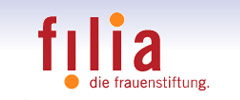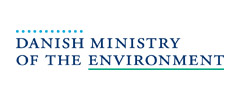European Parliament votes to improve access to environmental information
Access to justice at EU level will however only remain with industry.
20.01.2006 |Daniela Rosche
Download press release as pdf.
(Strasburg, 18 January 2006) The European Environmental Bureau and CEE-Bankwatch welcomed the demands of the European Parliament for stricter rules for access to environmental information from the EU Institutions. This would also include better information about actions of the Commission regarding violations by the member states of the agreed EU law (infringement procedures). NGOs also welcomed the insistence of the Parliament to guarantee better public participation procedures on environment related decision-making, and to include policies, funding and banking activities. In this way, also the European Investment Bank, for example, would be forced to finally grant transparency and citizens influence on its decisions.
However, the Parliament rejected an amendment to implement the Aarhus Convention requirement to open up access to justice on the EU level for environmental organizations. A year ago, the EU ratified, in agreement with the same Parliament, the Aarhus Convention, which obliges its Parties to provide such access to justice. In this way environmental citizens organizations would be able to ask Courts to intervene when a public authority is violating relevant environmental laws or refuses to apply them.
John Hontelez, Secretary General of the European Environmental Bureau said: “We are happy with the important improvements the Parliament insists on regarding access to information and public participation. This will certainly lead to more environmentally sound decision-making by the EU Institutions, However, we are disappointed that so many Parliamentarians voted against giving environmental organizations a small measure of access to the European Court. They may have been encouraged to do so by the campaigning by Europe’s chemical industry, which seems to fear that NGOs could challenge certain decisions regarding chemical substances on the EU market. Giving such a right to NGOs would have brought some balance between the defense of private interests, of industry, and public interests, such as the environment and health. With this, the conservative side of the Parliament has done a serious blow to participatory democracy in Europe.”
Magda Stoczkiewicz, Policy Coordinator for the CEE-Bankwatch Network, added: ‘It is positive that 'banking' activities will be covered by the Aarhus regulation. That means the European Investment Bank - currently vastly un-transparent - will have to drastically amend its information policy.'
Background:
The European Parliament voted in second reading on a Common Position of the Council to apply the Aarhus Convention (on access to information, public participation and access to justice in environmental matters) to the EU institutions and bodies. The Environment Committee of the EP had presented a set of amendments that would improve the Position considerably, limiting exceptions to access to information, rejecting systematic exceptions for certain types of decisions and activities, and also to re-instate an access to justice provision the Commission originally proposed, but the Council rejected. The EP followed the Environment Committee in all proposals but for the one on access to justice. The amendments carried will now have to be negotiated with the Council of Ministers and the Commission before they become part of the so called Aarhus Regulation.
For further information please contact:
John Hontelez, EEB: +32.486.512 127
Ralph Hallo, EEB: +31.621 59870
Magda Stoczkiewicz: +32 2 542 01 88, mob: +32 475 867 637
































